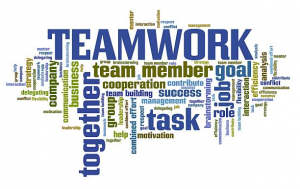
[123RF]
In polytechnic and university, students are expected to take part in many group projects. This is especially so in their final year when they go through a six-month journey with others to complete their major project, also known as Final Year Project (FYP).
During these projects, you’ll have to overcome many hurdles and adjust to your group to make sure that the project flows seamlessly. Here are some Dos and Don’ts to help you along the way.
What are the Dos?

[123RF]
Be mindful of others’ work styles

[iStock]
Everyone has different ways of working. For example, some might prefer to start their work earlier, or some might start theirs later. Some need more time with their tasks, while others can complete theirs quickly.
Always be mindful of this and allow them to use their own work styles. Here’s how you can do that:
1. If your group mate does last-minute work, give them an earlier deadline just in case.
2. If your group mate needs more time with their work, you could give them more time with their work or your group could start discussions earlier
3. Trust them with what they’re doing. If you’re feeling insecure, you can do the last check-through before submitting it. Do note to not be too controlling with the document.
Welcome others’ counterarguments

[YouTube]
During group discussions, always welcome others’ counterarguments to your points. Address it politely and consider the counterargument first. If it is an excellent point to note, then accept the suggestion. If not, you can provide more details and data.
This shows that you are willing to accept others’ suggestions. Others also start to see that you are receptive and open-minded, so they are more inclined to work with you.
Give everyone a turn

[Train Your Board]
Always give everyone a turn to speak or contribute to the project. This not only shows others that you are inclusive but it also improves the quality of your project.
After all, if you leave them out, you’re down one man, which means a heavier workload for the others. You’ll also miss out on helpful advice or suggestions you could’ve used to improve your project.
If you notice that someone hasn’t spoken yet, encourage them to voice their ideas and suggestions.
Plan ahead

[Depositphotos]
Always plan ahead while working on a group project. Planning ahead means preparing logistics and resources for your project. You should also set goals for milestone checks at regular intervals.
This gives your group better direction and helps you check in on your project’s progress and areas of improvement.
What are the Don’ts?

[123RF]
Wing it in presentations

[Photo Stock Editor]
Group projects often require you to conduct a presentation at the end of it to present your work and your project. But many of us neglect to prepare for them and wing it instead.
This causes us to flounder during our presentation, which costs us our marks (yes, some presentations are graded). Here are some tips to prepare for presentations:
1. Have trial runs not just individually, do it as a group too
2. Prepare scripts and speech cues (make sure that the entire group is familiar with them)
3. Make sure that your slides are short and concise
4. You can put details in the ‘speaker’s notes’ so you can refer to them as you present
Be inflexible

[Adobe Stock]
You need to collaborate with your group mates when working on group projects. This means adjusting to them and working together with them.
It could be working around their schedules and conditions (e.g. medical issues). Or even adjusting milestone checks if your group mates can’t complete their tasks by then.
If you’re inflexible while collaborating with your group, they become more stressed as they try to hit rigid deadlines and have to juggle their schedules with group meetings and their conditions. This leads to burnouts and a lowered quality of work.
Go in with a negative mindset

[iStock]
Never go into group projects with a negative mindset. You could be grouped up with someone you don’t like, or you just don’t like group work.
But when you start out with a negative outlook, it lowers your productivity levels. You also affect your group mates by lowering group morale. Instead, be positive and do your best for the project! This will improve your performance, increasing the chances of a good score.
Be afraid to disagree

[123RF]
If you disagree with a point during a group discussion, don’t hesitate to speak up! If you don’t provide feedback and counterarguments, it won’t help your project to improve because it doesn’t develop and improve discussions.
Not to mention that your group members might think you’re not contributing, which might affect their impressions of you and possibly their appraisal of you (which contributes to your overall grade).
Conclusion

[iStock]
Group work is important in many modules in polytechnic and university, often carrying a heavier weightage than your other assignments. This is why it is vital to do your best and put your best foot forward.
With these tips, you can look forward to a successful group project! Good luck!
